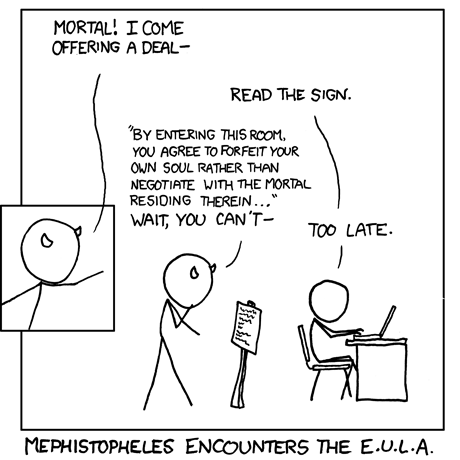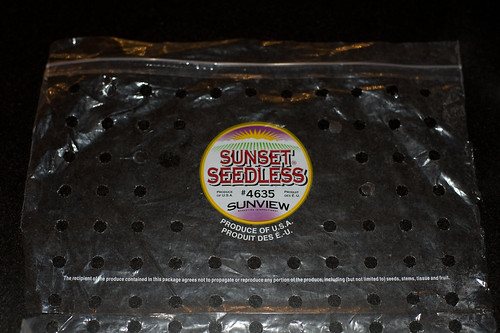A genre is a category or grouping of similar types of cultural phenomena. But at what point does something stop being a mutation of an existing group and evolve (or is it more of a revolution?) into a sub-genre or new-genre? According to Wikipedia the process is always ongoing – almost like glacier-like processes:
Genres are formed by conventions that change over time as new genres are invented and the use of old ones are discontinued. Often, works fit into multiple genres by way of borrowing and recombining these conventions.
But yesterday I came across what was – for me – an explosive birth of a new genre in the form of Dramatic readings from the iTunes EULA by Richard Dreyfuss on Cnet. Cnet explains why they created this exciting new artform
This Friday’s Reporters’ Roundtable is on a topic that vexes us all: why are end user license agreements and terms of service so long and convoluted? To get ourselves in the mood for this show, we asked CNET fan (and Academy Award winner) Richard Dreyfuss if he’d help us out by doing a dramatic read of the Apple EULA. He said yes.
Sure, it was meant as a joke. But listen to Dreyfuss readings and you realize that he fills a valuable need, fills a void in litterature and drama, and also a gap in the market.
As part of my research I have written about licensing and EULAs and very often felt my head becoming numb through attempting to battle through the awful prose that make up these “agreements”. Imagine the great service to the world if great readers followed the Drefuss example and provided this amazing service to lawyers, law students, activists and the general public.
Dreyfuss is a pioneer but I am waiting for a world where Stephen Fry reads the GPLv3, Patrick Stewart reads excerpts from the Creative Commons legal code and Seth MacFarlane (the voice behind Peter in Family Guy) reads the classic Microsoft Windows XP Professional End-User License Agreement.

